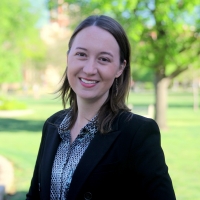Psychology is a research science, and most of our faculty have active research programs. Students can be an integral part of ongoing research in the psychology department by being a Research Assistant to a faculty member. Course credit is arranged through PSY 3440 (up to 12 hours) or PSY 3990 and 4990 Independent Study, for one to three credit hours per semester. The experience may be repeated for a maximum credit of six hours. Students may be invited by a professor to join his or her lab, or they may seek out a particular professor based on information from the website or the undergraduate academic advisor. Duties vary depending on the researcher and the project but can include tasks such as literature searches; gathering, coding and entering data; and participating in research discussions with the lab team. This opportunity is designed for students contemplating graduate school and provides valuable experience in the research enterprise.
If you would like to become a Research Assistant, please contact one of the research labs listed below, or make an appointment with a professor whose research is most relevant to your interests and career goals (see the Faculty page for more information about individual faculty members and their research).















